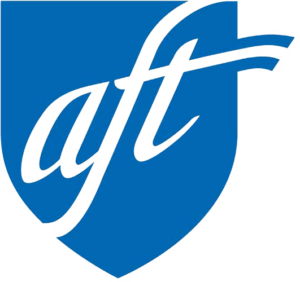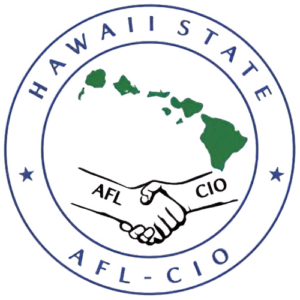Unraveling UHM’s Debacle On Specialists
Demystifying The Process
Over the past week, there has been a lot of discussion, confusion, and questioning as to the purpose, intent, and meaning as to why the University of Hawaiʻi at Manoa (UHM) Office of the Vice Provost for Academic Excellence (OVPAE) sent out an email request to the UHM Administration to document a “guesstimate” on percentages in the work faculty Specialist perform under five distinct categories of: 1) % Student Support including Advising; 2) % Academic Support to Departments, Curriculum; 3) % Research and Research Support; 4) % Classroom Instruction as Instructor on Record; and 5) % Other. The email gave the perception that the SCR 201 Task Force that UHPA was part of was still operational and that they were the genesis behind this request for information from Specialist faculty.
Since then, there has been a lot of speculation, suspicion, perception, and twitchy feelings about this on-going review process by a non-existent Task Force. Thus, clarification and a full explanation is needed.
SCR 201 Task Force Has Concluded
There seems to be a speculation and connection that this current UH Faculty Classification Review is being driven and/or directed by the Senate Concurrent Resolution No. 201 that was adopted by the Legislature during the 2021 Legislative Session. As noted in SCR 201, the task force was requested to submit a report of its findings and recommendations, including any proposed legislation, to the Legislature no later than twenty days prior to the convening of the Regular Session of 2022. On Friday, January 28, 2022, the SCR 201 Task Force submitted its report to the Legislature which can be found here. Though the Senate Committee on Higher Education (HRE), through its Chair Senator Donna Mercado Kim, initially claimed that they were unaware of the report, and therefore, were supportive of the recommendations of the Tenure PIG, which was the basis for SB 3269. SB 3269 was supported by former Board of Regent (BOR) Jan Sullivan and former BOR Chair Ben Kudo. Regardless of whether the Senate agreed or disagreed with the SCR 201 Task Force Findings and recommendations, the report was submitted and the SCR 201 Task Force was dissolved.
Board Of Regents Moved Forward
Based on the SCR 201 Task Force Report, the Board of Regents at the February 17, 2022 meeting passed a motion on what they wanted to see as the next steps. This includes but was not limited to, establishing a four-member steering committee that includes the Executive Director of UHPA and the President of the University to address the recommendations noted in the SCR 201 report; actively engage in determining whether the effective resolution of each task will necessitate changes to various policies, agreements, or campus guidelines; and agree to co-manage the consultative process for each change as necessary. The steering committee was requested to meet on a weekly basis to ensure that work progresses in a timely manner.
Steering Committee Established
The BOR Chair Randolph Moore established the Steering Committee and set forth the charge and deliverables to the Steering Committee based on the BORʻs motion in which the BOR set its expectations and desired outcomes. The Steering Committeeʻs charge and deliverables based on the BOR mandate are:
- Develop written processes for addressing the few instances when the productivity of a tenured faculty member has declined and s/he is unable to perform faculty duties satisfactorily, including following a periodic review and professional development plan.
- Clearly define “faculty” and develop (a process involving the administration, the faculty, and the University of Hawai‘i Professional Assembly)
- Classification system for the faculty more aligned with its benchmark institutions.
- Determine criteria for reclassifying positions currently classified Specialist (S) to a tenurable general faculty position, a non-tenurable faculty position, a non-instructional faculty position, or a non-faculty staff position.
- Examine each Specialist (S) position and determine once the position becomes vacant how it should be classified.
- Develop a process whereunder an incumbent in a Researcher (R) or Specialist (S) position could apply to have that position reclassified while the incumbent is still in it.
- Develop policy relating to job security and periodic evaluation for Specialist (S) positions that upon becoming vacant are reclassified as non-instructional faculty.
- Develop guidelines for general faculty “buy-out” of teaching assignments with extramural or other sources of funding in a manner that is consistent with the new work assignment template for faculty.
The Steering Committee (SC) believed that the research, data, and work done by the SCR 201 Task Force would be helpful to review and analyze to ensure that the committee wouldnʻt replicate or perform tasks already performed, as well as, to be used as a foundation for determining what further research and data needed to be obtained before the Steering Committee engaged in their work.
Therefore, the Steering Committee began by identifying and determining what the different faculty-composed working groups that would be required to be developed to meet the four (4) areas as outlined in the report adopted by the BOR. It was determined that Charge 2. above would require more than one working group to accomplish the work efficiently and effectively.
Thereafter, the Steering Committee began reviewing what information, data, metrics, etc. would be or might be needed by any of the considered working groups. The Steering Committee discussed the information that had been received by both the BORʻs Permitted Interaction Group and the SCR 201 Task Force in determining what information, data, and metrics might be useful and whether further fact gathering was necessary if such material was determined by the Steering Committee to be incomplete.
After further review and analysis, the Steering Committee realized that for items 2. b. and c., as listed above, the data was incomplete. The SCR 201 Task Force noted at its October 22, 2021 meeting that “Faculty specialists remain a challenging category because of the range of different job descriptions included in the category. During this meeting the TF also discussed what kinds of faculty positions are actually in policy and where they can be hired. And the history of why some of the classifications were created was considered in the context of relevant HLRB decisions. It may be useful to do additional investigation into how specialists are divided by type of work assigned. It was noted that generally there appear to be four categories into which the percentage of workload for specialists fall: classroom, research, student support, and academic support. To acquire data on Specialists, supervisors will have to be surveyed because there is no consistency across this category. There are non-instructional CC faculty as well and so identifying their job descriptions will also be relevant.” While the UH Community Colleges, UH Hilo, and UH West Oahu performed their due diligence in gathering this information from their respective campus supervisors when the initial request was made by the SCR 201 Task Force last year, UH Manoa unfortunately did not.
The Steering Committee determined that when such working groups are established such information would be beneficial to these committee members as generalized data, information, and metrics to start their review and evaluation process. Therefore, Debora Halbert (Vice President for Academic Planning and Policy) under the direction of President David Lassner sent another request to the UHM Campus to provide the information that was requested previously for the SCR 201 Task Force for the Steering Committeeʻs review and information.
Misdirected And Misguided Message From OVPAE
Unfortunately, this is where all the confusion began. If the process was followed and adhered to pursuant to the Presidentʻs first directive to the UHM administration under the initial SCR 201 Task Force request this debacle and perplexity wouldʻve been avoided and the resulting anxiety and confusion – non-existent. UHPA can only make its assumption that President Lassnerʻs second request for information to the UHM campus was taken as a message that this needs to be addressed and resolved ASAP since it was the second request by the President. Unfortunately, it was treated and handled without regard to how the process should be driven and the impact it would have on Specialist faculty at UHM. Moreover, rather than requiring faculty supervisors to complete the survey as intended, the message sent on Thursday, April 14, 2022, was unclear about the directive that the Steering Committee planned. Therefore, it was conveyed incorrectly that Specialist faculty rather than their supervisors were required to individually complete the survey within a quick turnaround time being the close of business, Tuesday, April 19, 2022. Adding to more confusion and anxiety was the message that Researchers, Librarians, and Extension Agents werenʻt being requested to provide such information at this time without further information and context.
While we are not surprised by the recent events that have transpired, we are disappointed since this is not the first time UHPAʻs name and reputation has incorrectly been put forth as the justification and means for managementʻs actions. While we cannot control, dictate, or direct how information is provided by the UH Administration to the campuses, we do believe that in some instances and cases UHPA is justified in providing the clarification and relevant and pertinent information to our faculty so that they understand the intent and purpose of managementʻs actions.
Clear And Unambiguous Facts
The information that had been requested by the SCR 201 Task Force on the survey of Specialist and Community College Non-Instructional Faculty work assignments has not been used, referenced, or noted in the report to either the Legislature or the BOR.
The SCR 201 Task Force is now dissolved. No further action by this task force has been taken since it completed its report to the Legislature.
The information the UHM Administration was seeking was originally a request from the SCR 201 Task Force. However, the information is now being requested by the Steering Committee as general data and information gathering for the sole purpose of providing this information to working groups that the Steering Committee will develop that will be composed of faculty members in the Specialist classification.
Matters dealing with the review of teaching equivalencies, buy-outs, 5-year review, faculty productivity, and faculty classification are all part of this new charge to the Steering Committee who will then formulate various working groups composed with faculty members to begin this process of review and analysis.
Moving Forward
The recent debacle and confusion has brought awareness that UHPA cannot rely on the communication, information, and management of the Steering Committeeʻs work and UHPAʻs involvement on the Steering Committee. UHPA recognizes and appreciates the numerous emails, phone calls, and messages we have received from the membership expressing its concerns and confusion over this matter. UHPA respects and welcomes faculty to address any and all concerns directly with UHPA in that we can be apprised of matters and situations that we are unaware of, and in that we can respond, take action, and address accordingly. Moreover, we do acknowledge that these matters are dear and close to faculty interests and that we cannot rely on either the BOR or the UH Administration to convey accurate and complete reports on this BOR agenda and directive. Therefore, UHPA is committed to provide the membership with its own organizational updates on this subject matter as this process moves forward.
UHPA wants to reinforce that our goal, intent, and purpose is to manage and control the process through providing meaningful input through open dialogue and communication in that the collective bargaining rights and processes are followed; that the classification process, review, and evaluations are followed; and to ensure that matters are determined and decided with objectivity, consistency and equity.



